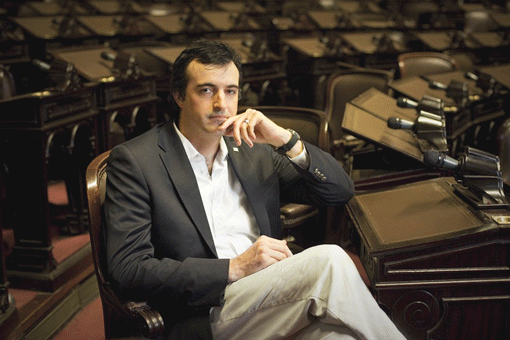Reading Time: 3 minutesDemocracies cannot flourish with a stagnant citizenry. They require an electorate which from an early age is responsibly engaged, educated in political theory and instilled with the values from which republicanism is constructed. The lessons of democratic citizenship prepare young people to become more than observers of a regime, but actors in an equal and free community. Political involvement builds collective pride in a nation, motivating individuals to take ownership of their government. If a culture is erected around civic indifference, democracy’s strongest weapon (the power to choose governmental direction) is willingly, but perhaps unknowingly, surrendered.
Today, more than half of Latin Americans assert politics is too complicated to understand, according to a 2005 Latinobarometro report. If the multifaceted process is never explained through experience or education, civic participation inevitably wavers and political discussion is virtually silenced. Unfortunately, as is the case in the Western Hemisphere’s southern region, just 27 percent of Latin Americans discuss politics with friends and only 17 percent engage in ideological debate. Moreover, according to a 2004 United Nations Development Programme (UNDP) study, less than one in five reported being involved in an issue that affects them or their community; fewer than one in ten has worked for a political candidate or party.
Of greatest concern, however, is the impact of ineffective civic education on the citizens of tomorrow. The UNDP study revealed that 29 percent of 16-to-29 year olds in Latin America have non-democratic orientations.
There are a myriad of cultural (and economic) reasons for this. Today’s Latin America is plagued by persistent poverty and inequality, the return of authoritarian governments and increased criminality and violence, which has created skepticism about the rule of law. Over half of Mexican youth surveyed agreed with the statement that “if the law is against your interests, it is legitimate not to abide by it,” according to a 2002 International Association for the Evaluation of Educational Achievement (IEA) study of 14 year olds. As confidence in democracies has fallen, one in three Latin Americans is unable to differentiate between benefits derived from democracy versus other forms of government
The contrast with Latin America’s older generations is stark. Democracy’s introduction during their formative years was inspiring. Prior to 1978, just three nations in the region freely and competitively elected their leaders. By 1990, 17 Latin American nations had become representative democracies. These older generation experienced the positive cultural evolution created by the establishment of democracy in their countries. We saw democracy as a way of life, not simply a seemingly desirable, noble system.
Today, however, even the basics are misunderstood. In the IEA study, fewer than half of Mexican youth admitted to an understanding that democracy required the popular election of officials. The same low percentage recognized the function of the Constitution, regularly held elections, political parties, or Congress.
History studied is no substitute for history experienced. Democracy as an ideology is dead without public participation. Even the best textbook cannot replace active participation in classroom elections or involvement in localized community issues. Further, when learning about citizenship, pupils of democracy must see their voices impact their home towns, families and personal lives in order to even begin to perceive the benefits.
The lack of knowledge about democracy is one of the region’s biggest challenges. It explains the slow progress equity made within Latin American democracies and the reversion, in some cases, back to authoritarian regimes.
Partnerships with mature democracies can help broaden understanding. For example, in 2003, the U.S. Center for Civic Education, the U.S. Agency for International Development and leaders across Latin America partnered to form Civitas Latin America. This program, subtitled, Civic Education Exchange Program, was aimed at opening a hemisphere-wide exchange and conversation among administrators, educators and students in order to improve citizenship education.
U.S. teachers and students went to Latin America to observe the challenges and opportunities of developing democracies, while Latin Americans visited the U.S. to witness the real-world benefits of democracy in action. In the program, students participated in Democracy Camps and finished the semester with competitive student showcases. During the program’s first year, 2,198 teachers were trained and 13,288 students became civic participants. The lessons learned were invaluable. As one student wrote, “…today I learned that I have to make use of my rights, and that I am also a citizen of Argentina. I am equal to any other citizen.” I have been involved in a local experience that promoted accountability and democratic decision making in public schools and the results were astounding in terms of getting youth more acquainted with republican institutions.
Like what you've read?
Subscribe to AQ for more.
Any opinions expressed in this piece do not necessarily reflect those of Americas Quarterly or its publishers.






